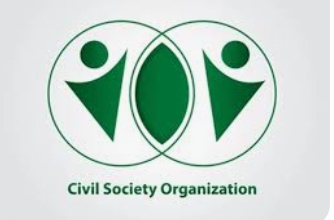In 2023, the Civil Society Organisations (CSOs) noted a decrease in Nigeria’s corruption levels compared to 2022, although the nation still lags behind the global average.
A recent Corruption Perception Index (CPI) report, jointly published by the Civil Society Legislative Advocacy Centre (CISLAC) and Nigeria’s Transparency International (TI) chapter, indicates Nigeria’s CPI score rose to 25 out of 100 in 2023 from 24 in 2022. Despite this improvement, Nigeria ranks 145th out of 180 countries, down from 150 in 2022.
According to Awwal Musa Rafsanjani, the leader of CSOs, Nigeria’s CPI score remains below the Sub-Saharan African average of 33 points.
He stressed that while most African nations exhibit stagnation, ninety percent of sub-Saharan countries scored below 50 points.
The CPI for Nigeria consolidates data from various sources, including the Bertelsmann Foundation Transformation Index, Economist Intelligence Unit Country Ratings, Global Insights Country Risk Ratings, PRS International Country Risk Guide, Varieties of Democracy Project, World Bank Country Policy and Institutional Assessment (CPIA), World Economic Forum Executive Opinion Survey (EOS), and World Justice Project Rule of Law Index.
While the CPI doesn’t pinpoint specific instances of corruption, it reflects the perceived level of corruption within Nigeria.
CSOs advocate for an impartial and independent Nigerian justice system.
They propose merit-based appointments and promotions in place of political appointments to restore citizens’ trust in the judiciary.
Additionally, they call for a robust integrity monitoring mechanism within the Nigerian judiciary, covering whistleblowing, asset disclosure, and conflict of interest reporting.
CSOs stress the urgent need for electoral reforms to rebuild citizens’ confidence.
They emphasize the importance of maintaining an updated Beneficial Ownership Register accessible to citizens.
Furthermore, they urge anti-corruption agencies to diligently pursue high-profile corruption cases, including exploring international avenues for cases of grand corruption.
Government agencies are urged to disclose comprehensive data on government contracts in accordance with the Freedom of Information Act 2011 and other international commitments.
Furthermore, agencies tasked with asset recovery under the Proceeds of Crime (and Management) Act 2022 are called upon to establish accessible databases for citizen scrutiny.
The National Assembly is urged to ensure transparency in implementing constituency projects, with accountability measures for offenders.
CSOs stress the importance of impartial investigations into security sector corruption to address Nigeria’s escalating security challenges, including scrutiny of security votes and other covert defence expenditures by civilian law enforcement agencies.











